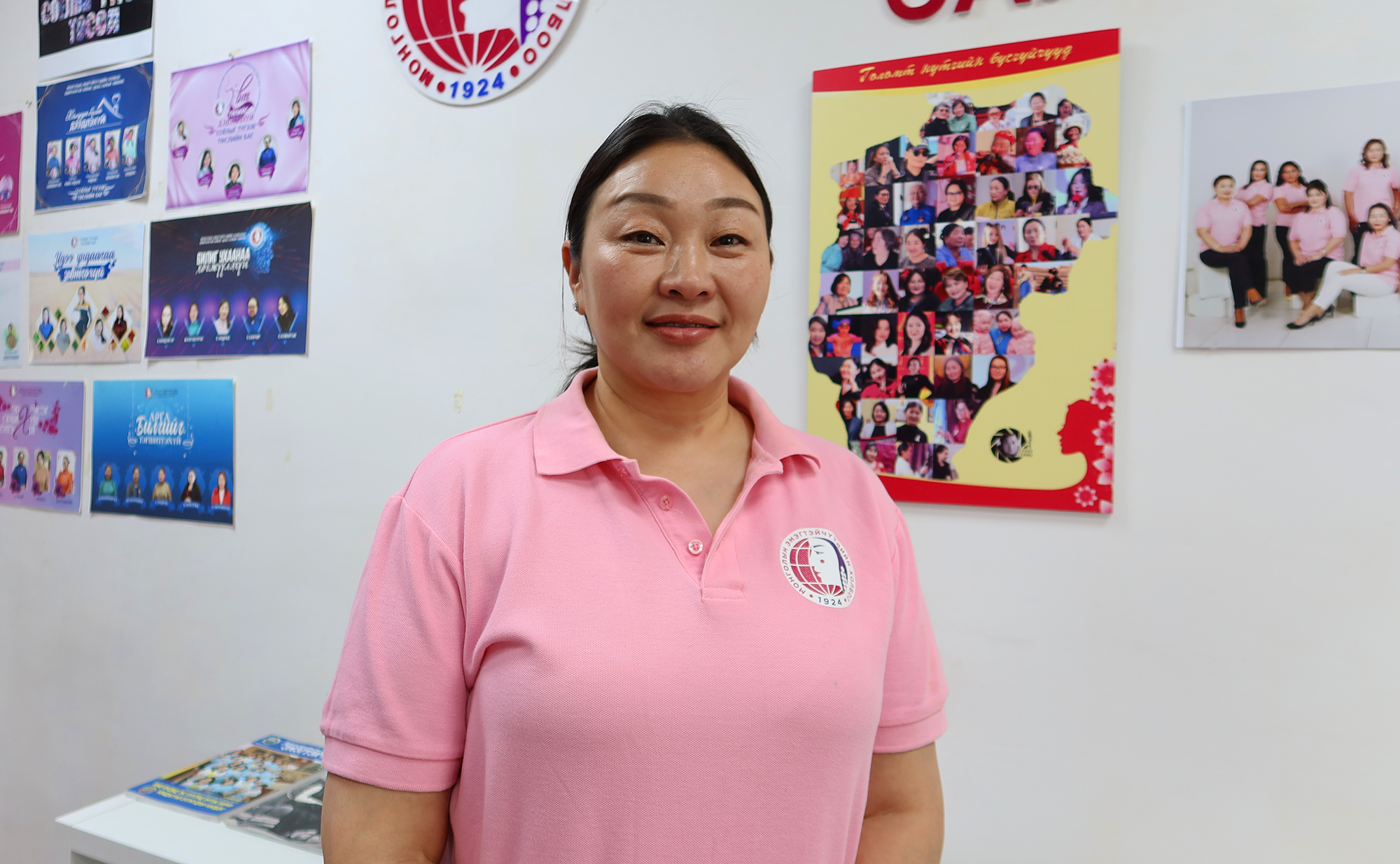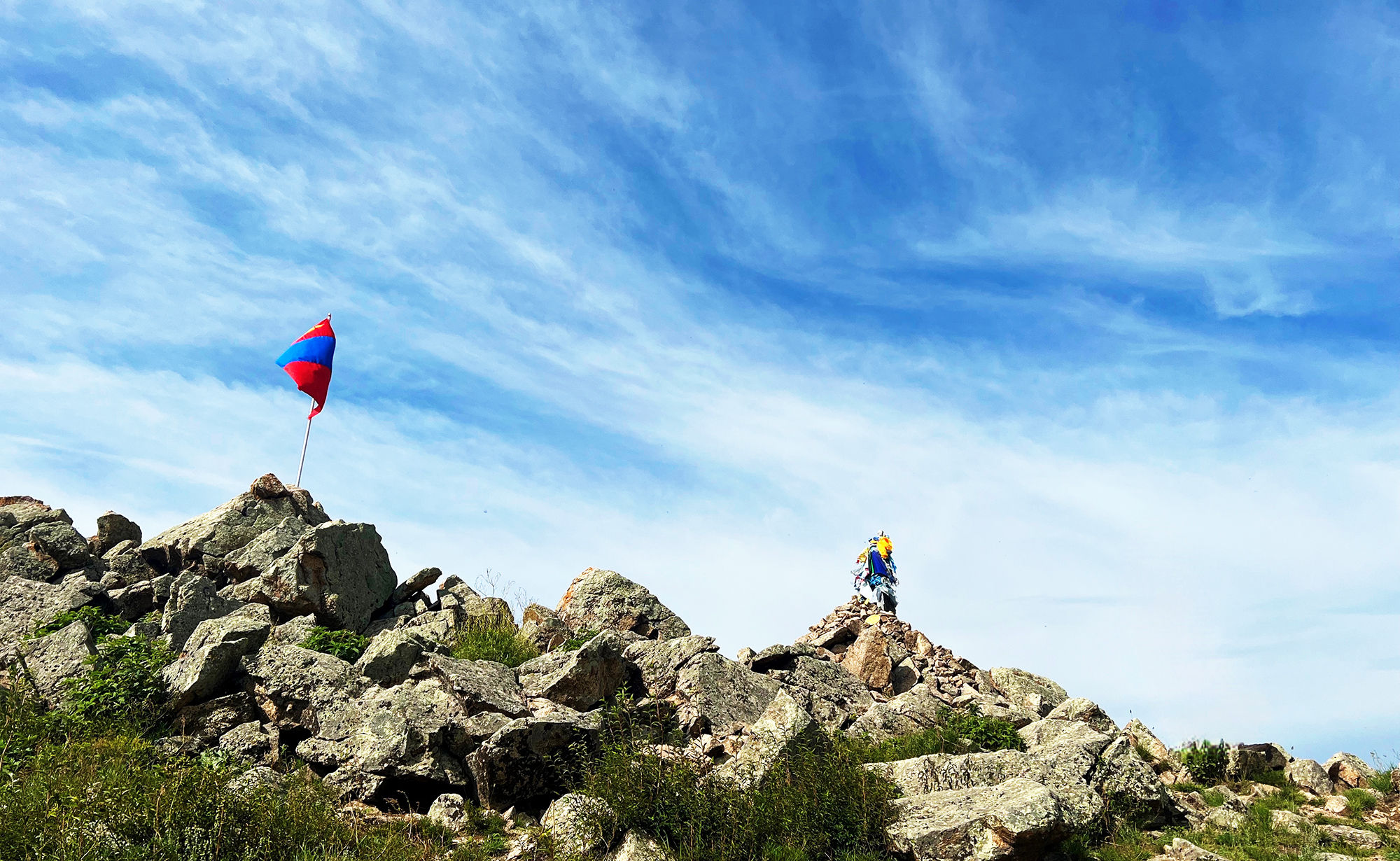The Momentum Is Here: Mongolia’s Journey Towards Gender Equality in Decision-Making
September 14, 2023
In the vast landscape of Mongolia, the traditional nomadic lifestyle is deeply rooted in the fabric of its culture.
Gers, the round white felt tents, have served as the traditional homes of the Mongolian people. They have supported their nomadic way of life and culture since before the time of Chinggis Khan.

Gers, the traditional round felt tents, are portable Mongolian homes that have been inhabited by the nomads since before the time of Chinggis Khan.
In the heart of these nomadic homes, two columns, known as "Bagana (Багана),” stand equally in their position. But these are not mere architectural elements supporting the Gers; they are like quiet messengers with a powerful story to tell. These columns serve as symbols of gender equality, with each one representing men and women, beautifully embodying the core principles of harmony and balance in Mongolian culture.

The two columns, known as “Bagana,” stand equally at the centre of the Ger.
If we call the Sun our roof
If we call the Earth our home
The two columns standing on our blue Earth are
You and Me
(Lines from Mongolian folksong – You and Me)
Despite this rich culture, gender inequality still prevails in Mongolia; men and women have not been equally seen in decision-making processes. The country currently ranks 133rd in terms of women's representation in decision-making, with only 17.1 percent of parliamentary seats held by women, falling below the global average of 26.5 percent.
But the narrative runs deeper. Today, Mongolian women continue to face insufficient support during their pregnancy and child-rearing while continuously battling against deeply ingrained gender stereotypes.
The recent UNDP Gender Social Norms Index report confirms this sobering reality. It shows that 97% of Mongolians hold biases against women, often believing men are better political leaders. These biases, rooted in patriarchal values, create systematic barriers for women in politics and public decision-making.
It is an undeniable reality that Mongolian women face every day.

Undrakh Sodnomdorj shares her journey of serving three-terms as a local assembly politician.
“No one ever told me, ‘Yes, you can do it.’”
Undrakh Sodnomdorj, a three-term veteran local politician, said her friends and colleagues were not too thrilled when she announced her candidacy for the position of Chairperson of the Citizens' Representative Khural, a local assembly, in 2020.
“Since 1992, my party has consistently won local elections. But despite having a 31-year history, there has never been a female candidate for the Citizens' Representative Khural, and that lack of representation has already become a norm within the party and the community.”
This entrenched mindset posed an additional challenge for her, making the path to winning the election even steeper.
“When women enter the political path, there are so many hurdles. It’s like we are under a microscope, and everyone is just waiting for the moment we make a mistake.”
This letdown was not her first time experiencing it in her over 22 years of experience in a government entity.
“Honestly, when I went through these tough situations, there wasn't anyone right there by my side to guide me. I had to confront and overcome those challenges on my own. I just don't want any other women to experience them,” says Undrakh.
It was around that time she decided to join the Women’s Leadership Network (WLN), a nationwide grassroots women’s network with over 1,800 members, initiated under the UNDP’s project funded by the Korea International Cooperation Agency (KOICA).
---
And she was not the only one who came together to make a collective change.

Enkhchimeg Namsraijav reflects on her experience of receiving support from fellow women politicians as a newcomer in local politics.
“Joining this network was a real turning point for me. I'll be honest, I was a bit skeptical at first because we came from different political parties. But it didn't take long for us to click. I've learned so much, and what really touched me was the support I received from them. When I faced online bullying last time, my network friends were like, 'Don't worry, we've been there too. Don’t give up.' It really helped me get through it.”
Enkhchimeg Namsraijav, a first-time elected local politician, expressed her surprise at the tremendous support she received from fellow women politicians.
-

The Women's Leadership Network (WLN) members gathered to raise their collective voice and concern on gender quotas issue in front of the Government House.
MPA -

The Women's Leadership Network (WLN) members gathered to raise their collective voice and concern on gender quotas issue in front of the Government House.
MPA
Last June, Enkhchimeg and WLN members from diverse backgrounds and political affiliations stood together to advocate for a higher gender quota in the legislation.
“We collected over 3,000 letters from men and women in every province, and it was really amazing!… When the parliament meeting was held to re-consider the gender quota issue, it felt like witnessing a brand-new history unfolding. I honestly believe all the work we put in made a difference.”
The legal reforms have recently increased the quota for women among party candidates from 20 percent to 30 percent in the 2024 parliamentary election and aim to increase it to 40 percent for the following election in 2028.
“We're not entirely satisfied with the 30 percent quota, but the momentum is definitely here,” says Enkhchimeg with a glint of confidence in her eyes.
---
Efforts to promote equal representation continue at the Soum level, a sub-provincial administrative unit, through initiatives of male gender champions, a dynamic force within the project.

Ganchimeg Zolbayar, Uranbileg Dash, and Erkhembaatar Tumurbaatar take a project campaign pose to express their support for gender equality in decision-making.
“We very much welcome the decision of the parliament on the gender quota increasing beyond the current 20 percent. Because of this, whether they want it or not, every political party now needs to give more opportunities to women, and they are motivated to support capable women candidates to be actually elected.”
Uranbileg Dash, the local politician, said that this will boost their party's effort to gather support for their women party members.
“Some people think men don't support women, but that's not true. For me, gender equality isn't about genders; it's about people supporting people. And I’m all in for that,” says Erkhembaatar Tumurbaatar, the local party member.
---
Yet the challenges still persist.

Ovoo, piles of stones, is often found at the top of sacred mountains and serve as sites for the worship of heavenly gods in Mongolian Shamanism.
“There's this unique ceremony where newly elected Soum governors have to climb a sacred mountain to seek blessings as the new leader. The problem is, women aren't allowed to climb the mountain, and that’s why some people think women can't be leaders.”
Uranbileg emphasised that these old traditions and ideas about how men and women should act remain still deeply ingrained in the minds of people.
“I think with the law being amended, there’s an opportunity to shake up that old idea and believe anyone, regardless of gender, can step into leadership roles,” says Ganchimeg Zolbayar, the local party member.

At the heart of Ulaanbaatar, the statue of Damdin Sükhbaatar honours his pivotal role in securing independence from China in 1921.
And back in Ulaanbaatar, the vibrant heart of Mongolia, Enkhchimeg revisits the gender quota issue with her Ger metaphor, painting a vivid picture of why equal representation matters in decision-making.
“Our ancestors understood this for generations – that we're all equal. Just like two columns in a Ger, it's not about having more and more in one column; it's about balance. Think about it – what if you asked for 30% height in just one column? That wouldn’t make a perfect Ger. The same goes for the parliament and the society.”

 Locations
Locations


